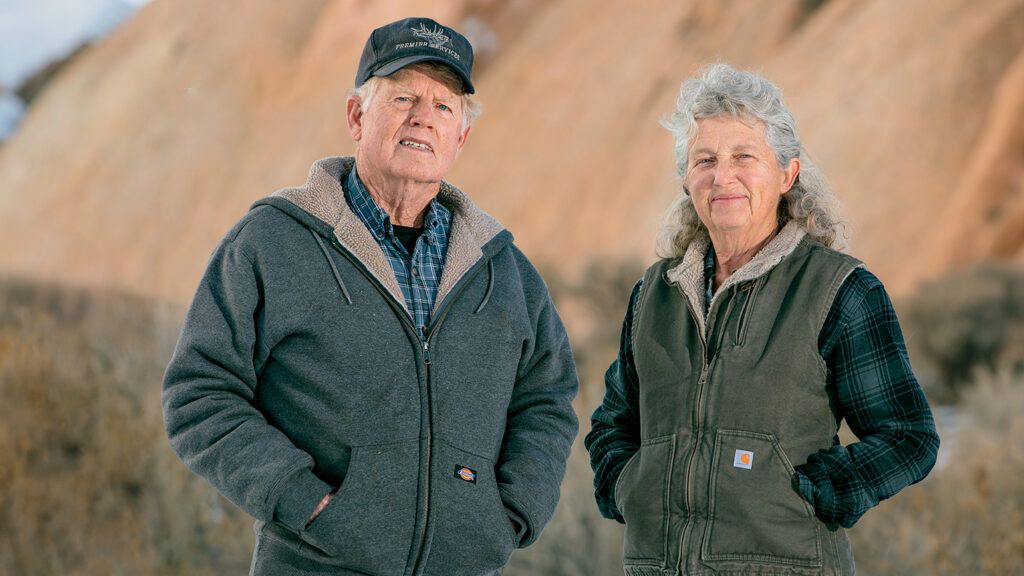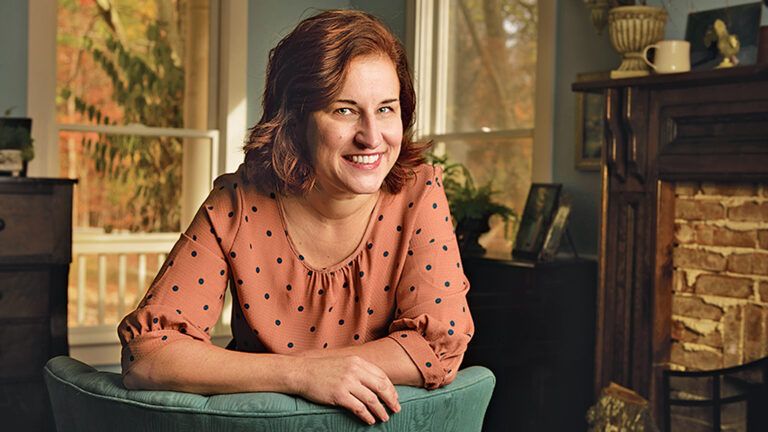“I’m not coming to your church. Period. Please stop asking.”
My friend Red and I were standing in my yard, the morning sunlight filtering through the trees, just as we’d done for some two decades. In all that time, I’d never said anything to Red that I feared might offend him. Until now.
Recently Red had been trying to get me to go to his church. The invitations started casually but had grown more insistent. Today he’d come over to fix my lawn mower. He and his boys had helped me out in countless ways during the four decades I’d lived out here in the rural West.
Before he even got to the mower, he started in about church. Red was a Mormon, but that wasn’t why I resisted his invitation. I’d been burned by churches in the past and preferred to meet God in Scripture and in nature, walking the hills with my dogs.
“I respect your church as I do all churches,” I said to Red. “I am just not drawn to a particular church anymore.”
“You can’t deny that belonging to a congregation has certain benefits,” Red said.
“I don’t deny that. I just don’t feel the need for church at this time in my life.”
Red kept at it as he worked on the mower.
“Are you afraid of where I’m going when I die? I’m not a heathen, you know,” I said, trying some humor.
Red laughed. “I think you would really be happy in a church family,” he said. “You spend too much time alone.”
This was starting to feel personal. “I like living alone,” I snapped. “You know that.” I hoped my tone would convince him to stop.
Mower fixed, he tried one last time before he got in his truck. “Why don’t you come to church next week with Starlyn and me for Easter service?” Starlyn was his wife of 50 years.
“I’ll be at a nondenominational sunrise service,” I said. “It’s outside with the wind and the coyotes—my kind of church.”
“Okay,” Red said. He got in the truck. I thought he was done. He smiled. “My grandson is getting baptized this summer. Maybe you could visit then.”
That did it. I stopped trying to be polite and just flat out told him to stop asking and never ask again. I didn’t hide the anger in my voice.
Red looked at me for a long time. “I guess I better go,” he said and started the truck. I watched as he drove down the highway in a cloud of dust.
Right away, I regretted my words. I meant what I’d said to Red about my independence. But Red was important to me too. He and Starlyn had been my surrogate family for about as long as I’d lived out here on Blue Mountain. Red was like a big brother. He looked out for me.
We’re what counts for neighbors here in northwest Colorado. Red lived eight miles away in Dinosaur, the closest town to my rural acre. A mutual friend introduced us, and we discovered we’d grown up just 15 miles away from each other in Oklahoma.
“You were raised in Osage County?” Red asked in amazement.
“Yep. A farm 15 miles from Fairfax.”
“I lived in Fairfax. My dad was an interpreter for the Osage tribe.”
Red was a decade older than me. He’d worked as a mechanic in the local coal mine and could fix just about anything. He and Starlyn had seven grown children and a crew of grandchildren and great-grandchildren.
Red and his boys had helped me repair water lines, build fences, replace pipes. Red and Starlyn shared my garden each summer because I had more space and the water was less expensive than their water in town.
Red was a great kidder and sometimes joked that I was his “poor widow” charity project. I only half thought that was funny.
Fact was, I was fiercely independent and had been for most of my life. My mom had walked out on our family when I was seven. That’s when I began meeting God outside. I found out-of-the-way places on the farm to hide and play. I felt God’s presence in the plain beauty of the Oklahoma prairie.
My father gave my siblings and me a sense of security growing up. But I struggled to trust people outside my family. I burned through a disastrous marriage and was on the way to ending a second when my father died in a tractor accident.
By that point, I was living in Colorado. I’d moved there because my son from my first marriage had asthma and a doctor advised me to move west. My son’s asthma was cured, but the move did not help me settle down.
I worked all kinds of jobs that women don’t ordinarily do: laying pipe, building railroad tracks, welding. I was tough on the outside, yearning for love on the inside. I bought the house on Blue Mountain because the land there reminded me of my farm childhood.
Folks at the church I attended when my father died were interested in one thing: “Was he saved?” There was no support or consolation. Just that judgmental question.
I was furious and left that church in a hurry. For a time, I attended an Episcopal church in town. The priest reassured me that even though my father wasn’t a regular churchgoer, his relationship with God was something I could trust God to handle.
The priest eventually moved on to another assignment, and the church, like so many rural parishes, dwindled and finally closed. Since then I had worshipped outside in my own way.
I prized my independence. Watching Red’s truck disappear down the highway, I wondered whether I prized that independence too much.
A week went by without a visit or call from Red. Then another week. My heart ached at the thought that I might have lost Red and his family in my life. What could I say to make things better? Probably he took my refusal as an insult to his faith. Would I just make everything worse trying to explain myself?
As I always did whenever I needed to talk to God, I went up into the hills. On daily walks with my dogs, I said prayers for my friendship with Red, prayers for healing in myself and prayers for clarity about what I should do next. I sensed God’s presence in the smell of sagebrush, piñon pine and cedar.
One bright spring afternoon, after a light Rocky Mountain snow had melted and left my grass a brilliant green, I looked up to see Red’s truck coming down the highway. Red-winged blackbirds trilled out their joy for the coming summer. My heart leaped when I saw that Red had slowed and was turning onto my drive.
“Got that cable for your weedeater,” he said, getting out of his truck and making his way toward the carport where I kept my gardening tools. I had complained about the weedeater a while back, and Red must have remembered. I held my breath. Had I worried for nothing?
Red worked in silence replacing the damaged part, then accepted my invitation for an iced tea.
We sat in the yard for more than an hour, the sun warming us. Red surprised me with stories of growing up, and we swapped tales of our wild childhoods in Osage County. But something was missing. A note of somber seriousness had replaced Red’s easy laughter.
Standing up to go, he said, “I won’t invite you to church again. But I do want you to understand something.”
“Okay,” I said, bracing myself.
“Sometimes I worry about you living out here alone, miles from civilization, with no family anywhere near. I turned 80 last year. I won’t be around forever, you know. Being a part of a church does offer some security. You might think about that when you’re out in the hills with the dogs.”
I followed Red toward his truck and swallowed a lump in my throat. Everything made sense now. Red hadn’t been trying to convert me or persuade me to change how I worship God.
He’d invited me to church out of a sense of love and concern. The way a big brother would care for a sister. It was my stubborn sense of independence that had stood between us. Red was right. There’s a difference between being independent and growing isolated.
I smiled. “Thanks, Red. Now that I understand your motivation, maybe I’ll just shock you someday and come to your church.”
Red looked at me from the seat of his truck and smiled back. “Love thy neighbor,” he said.
“It sounds so easy, doesn’t it?” I replied.
Red laughed and pulled out of my drive. I could still hear him laughing as his truck turned onto the highway. His laughter stayed with me, a friendly echo the rest of the day.
For more inspiring stories, subscribe to Guideposts magazine.





